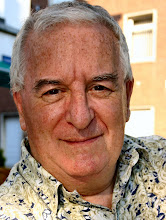A QUIET BEER
It’s a brewer’s dream to have his beer named the best in the world. That is unless you happen to be one of the 26 Cistercian monks who live by a vow of silence behind the walls of the Westvletern monastery of Saint Sixtus, located near the hop-producing town of Popering in the Flemish region of Belgium.
The Trappist monks at Saint Sixtus have been brewing beer for more than 160 years: a rich, dark-brown beer renowned for its exceptional flavour and strength. It’s not a big production: just 4,500 hectalitres a year, brewed over a period of 70 to 75 days. And they intend to keep it that way, despite winning the 'best beer' accolade.
While Belgium has more than 100 breweries and exports many of its "abbey" beers, only a few have links to religious orders. And apart from the amber nectar from Saint Sixtus, there are only five true Trappist beers brewed by monks, the others coming from Westmalle, Achel, Chimay, Rochefort and Orval.
Westvleteren is the rarest because it has not been distributed commercially for 64 years and can be bought only at Saint Sixtus where, even in times of plenty, customers are rationed to five cases of 24 bottles. You can get a taste of Saint Sixtus beers at the Café de Vrede, just across from the monastery gates – it’s the one place Westvleteren is still available, visitors may buy only six 33cl bottles.
Saint Sixtus monastery may not be commercial, but it does have a Beer Phone telephone number for international beer lovers: it’s + 32 57 40 10 57. Wait a minute: if the Cistercians abide by a vow of silence, who answers the phone?
The Trappist monks at Saint Sixtus have been brewing beer for more than 160 years: a rich, dark-brown beer renowned for its exceptional flavour and strength. It’s not a big production: just 4,500 hectalitres a year, brewed over a period of 70 to 75 days. And they intend to keep it that way, despite winning the 'best beer' accolade.
While Belgium has more than 100 breweries and exports many of its "abbey" beers, only a few have links to religious orders. And apart from the amber nectar from Saint Sixtus, there are only five true Trappist beers brewed by monks, the others coming from Westmalle, Achel, Chimay, Rochefort and Orval.
Westvleteren is the rarest because it has not been distributed commercially for 64 years and can be bought only at Saint Sixtus where, even in times of plenty, customers are rationed to five cases of 24 bottles. You can get a taste of Saint Sixtus beers at the Café de Vrede, just across from the monastery gates – it’s the one place Westvleteren is still available, visitors may buy only six 33cl bottles.
Saint Sixtus monastery may not be commercial, but it does have a Beer Phone telephone number for international beer lovers: it’s + 32 57 40 10 57. Wait a minute: if the Cistercians abide by a vow of silence, who answers the phone?

